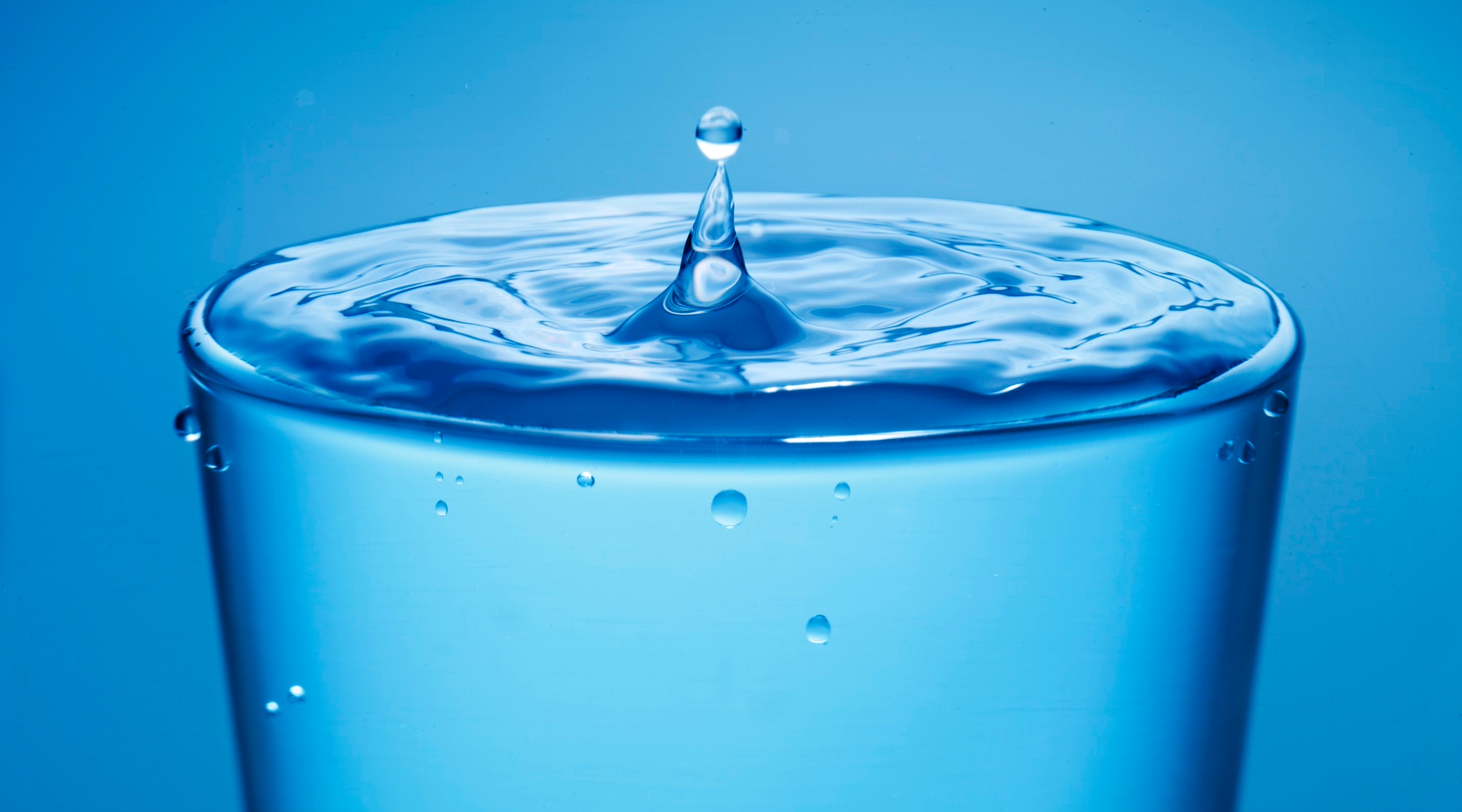When I was a little girl, my teacher told us about an ancient Jewish tradition — a story of a miraculous goblet that God keeps in the heavens, a tear catcher. It is said to be so delicate, yet so powerful, that it can hold the tears of our entire Jewish people, across time and space. She told us that every tear shed by our ancestors, every cry of pain and yearning for redemption, is lovingly gathered by God. And that one day, when the goblet overflows with our collective pain, the Messiah will finally come.
As I grew older, this story resonated with me less and less. It felt like a relic of a faith that valorizes suffering without truly confronting it. It didn’t fit with the God I was yearning to know — a God who could bear the weight of my anger on behalf of my people, a God who welcomes the raw edges of our pain, the offerings of our broken hearts.
But since Oct. 7, I find myself returning to that image of the tear-catching goblet. Every time my heart aches with grief, every time the tears come too easily, when the pain feels unbearable, I yearn for that goblet.
I know that my tears are just among the many that our Jewish family around the world have been shedding since that day. So many of our brothers and sisters in Israel are in the eye of the storm — bleeding, losing loved ones, mourning personal pain, going into battle, enduring the worst cruelty imaginable in captivity. The rest of us — the collective Jewish people around the world — still feel their loss as if it were our own. This pain isn’t distant; it’s ours.
And that’s why my heart keeps conjuring up a celestial, bottomless goblet capturing our tears. I keep thinking about all the tears and prayers, the desperate supplications, the begging, the fervent psalms, the praying so many have done with their feet, their wallets, their activism, with every fiber of their being. Where do all our tears go? Where does all that love go? We are a tiny people, and yet we feel so much. What happens to the tears we shed for Carmel, for Hersh, for Ori, for Alex, for Eden, for Almog — the six hostages whose bodies were recovered in the Gaza Strip last week? For all those killed, taken hostage, or wounded? What becomes of all the begging, all the bargains with God? Is there some sort of cosmic goblet that holds our collective Jewish pain?
The news of the past few days has brought so many of us back to the pain of those weeks following Oct. 7, when we were in the haze of hurt. Remember those days before the numbness set in? Before we started focusing on every new outrage in the news cycle, when we were simply horrified? We’ve endured countless losses of soldiers and other hostages since that dark Shabbat, and each one hurts deeply — but something about this news struck a nerve, intensifying the accumulated grief of our people, breaking through the fog.
I slept little the night we got the bitter news, and in the morning, I wondered what to tell my children. I decided to share with them the news about the hostages who were murdered , even though my children are young. I knew that if we lived in Israel, I wouldn’t have been able to shield them, and I felt that, as a Jewish mother, this is one of the talks that even as children they need to hear. My children, of course, knew about the hostages. They had prayed for them with me. They wore hostage necklaces. They had held up hostage posters at many of the awareness walks we had done.I didn’t tell them much about the horror — the 330 days in captivity, the callous murder, the desperate knowledge that we were so close to them and saving them, the way this tragedy seemed poised to bring our Israeli people back to the brink of civil war. I just explained why I was sad and said that it was a sad day for all of us.
My 4-year-old daughter, seated on my lap, listened carefully and looked at me with those serious eyes. “Is Hashem on their team?” she asked. I asked her to explain. “Is Hashem on the Jewish people’s team?” she clarified. My heart broke as I realized that my daughter was asking her own version of “why?’ How could this happen? How could a people who loved each other so deeply be experiencing this?
My daughter asked the same question we are all crying out right now — the question at the core of our pain. How could Hersh Goldberg-Polin’s parents, who loved him so fiercely, who shook the foundations of heaven and earth to free him, not get to hold their sweet boy again? How could Ori Danino, who escaped the hell of Nova but went back to save others, not make it back himself? How could Alex Lobanov, whose wife gave birth to their second child while he was in captivity, documenting each new moment of life to share with him, be killed just miles away from his new baby? How could Almog Sarusi, who had already experienced the agony of seeing his girlfriend murdered at Nova, suffer even more? How could Carmel Gat, with her laughing brown eyes, who cared for the hostage children and taught them yoga to help pass the time, be taken from us? How could Eden Yerushalmi, who hid for four hours from monsters at Nova in a shrub and begged her family in her last words to save her, not be saved?
These questions live in the deep pain we feel. It’s not that we don’t know who is to blame — there is so much evil, guilt and complicity. We know it was the Hamas monsters who kidnapped, ravaged, tortured and killed. We know they are supported by Iran’s axis of evil. We know they have been emboldened by too many in the West who refuse to condemn their so-called resistance, by those who have made the simple act of holding up a poster of a hostage outside of Israel feel like a stand — one that could be met with hate. We know that there is a toxic lack of trust within Israeli society and politics, to the point where too many doubt whether Israel’s government did all it could to save the hostages.
But none of this takes away the questions. None of this takes away the pain. What happens to our tears? What happens to our pain, our heartbreak? How could it not save them?
I dare not offer up answers while the latest graves are fresh, while 101 hostages are still in Gaza. The pain is too raw. We dare not lean into platitudes when all we can do is sit with our grief and embrace the silence that follows such loss. We must explain nothing and instead focus on where we can be of service, channeling our heartbreak into action — supporting the hostage families, advocating, and strengthening the bonds that unite the Jewish people. Now is the time to build trust and hold each other close. Our enemies are still at our door.
And as for the goblet, the tear catcher — while I’ve let go of my teacher’s certainty that there’s a rim, that every tear could be the one to break the dam and bring the Messiah — these past few months have convinced me that there is a goblet catching our pain up in the heavens. Our tears are filling a massive divine chalice, some sort of miraculous container that is holding the immensity of our collective pain. Every tear of our collective grief is an expression of love. It’s an expression of solidarity, an expression of how deeply connected we are as a people. And that’s precious. That’s our most potent weapon. That’s the place where hope will grow again.
JTA has documented Jewish history in real-time for over a century. Keep our journalism strong by joining us in supporting independent, award-winning reporting.







